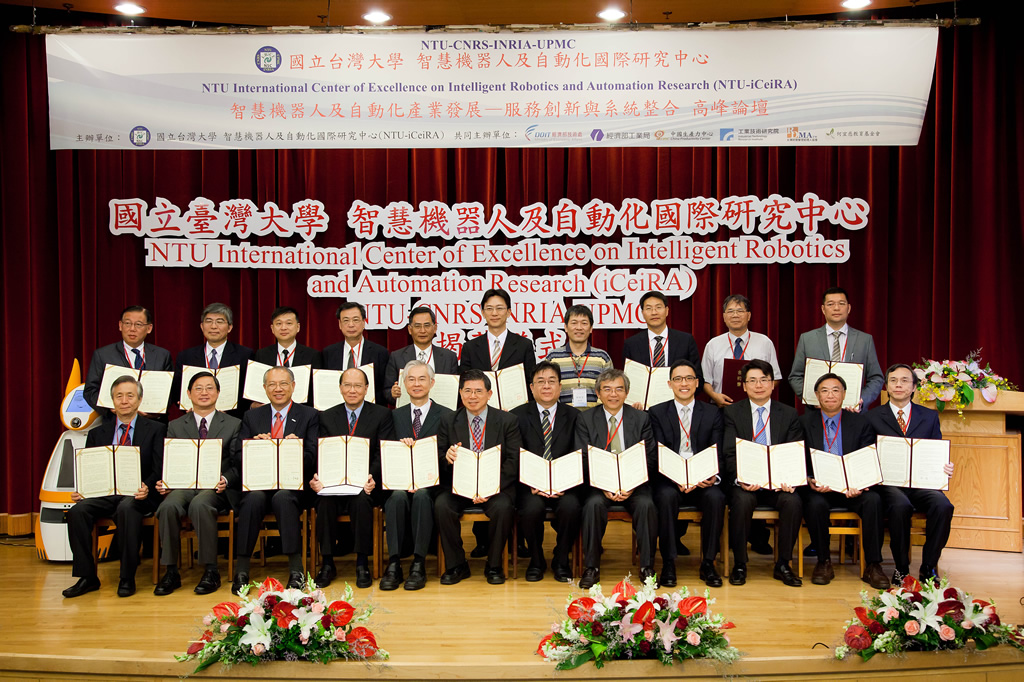Developing a Prosperous Future for a Greater Improvement: National Taiwan University Held the Opening Ceremony for NTU-iCeiRA
- 2012-05-04
National Taiwan University (NTU) and three leading French research institutes have teamed up to develop intelligent robots over the next five years, university officials said yesterday.

NTU president Lee Si-chen (李嗣涔) announced the plan at the inauguration ceremony for an international center for intelligent robotics and automation research, which was established by the two sides at the Taipei-based university. Lee said universities should aim “not only to produce papers, but also to solve social problems” and cooperate with industries to carry out their creative ideas. The establishment of the center not only heralds a more integrated academic cooperation between Taiwan and the EU, but also closer ties between universities and industries, Lee said at the event, which was attended by Vice President Vincent Siew (蕭萬長). The five-year project will be funded by NTU, Taiwan’s National Science Council, the French National Center for Scientific Research, the French National Institute for Research in Computer Science and Control, and Universite Pierre et Marie Curie. Twenty-five companies and local research institutes have also signed agreements to cooperate with the center to develop intelligent robots, and NTU hopes to expand the number to 50 by the end of the year, project director Luo Ren-chuan (羅仁權) said. The project will focus on developing the various technologies required to build intelligent robots for manufacturing, medical care and services industries, Luo said. Robots can also be used to perform highly dangerous or dirty jobs, he said. The center will focus on developing technologies that aim to strengthen the perceptive, cognitive, learning, adaptive, control and planning abilities of robots, as well as their ability to interact with human beings, he said. Luo added that he hoped Taiwan could become an important center in the world for the design, manufacture and use of intelligent robots by 2020. “It’s really a major event. We are taking the relationship between France and Taiwan a big step forward,” Bureau Francais de Taipei director Olivier Richard said. “I hope this example will be followed not only for the sake of the advancement of human knowledge, but also to show that common laboratories between Taiwan and France, Taiwan and Europe are possible, feasible and also desirable,” Richard said. Raja Chatila, deputy director of the Institute for Information Sciences and Technologies under the French National Center for Scientific Research, said he was optimistic about the future development of the center. Through the cooperation, Chatila said he believed “this center will soon become one of the world’s major centers for robotics,” aiming toward novel scientific research and application.




